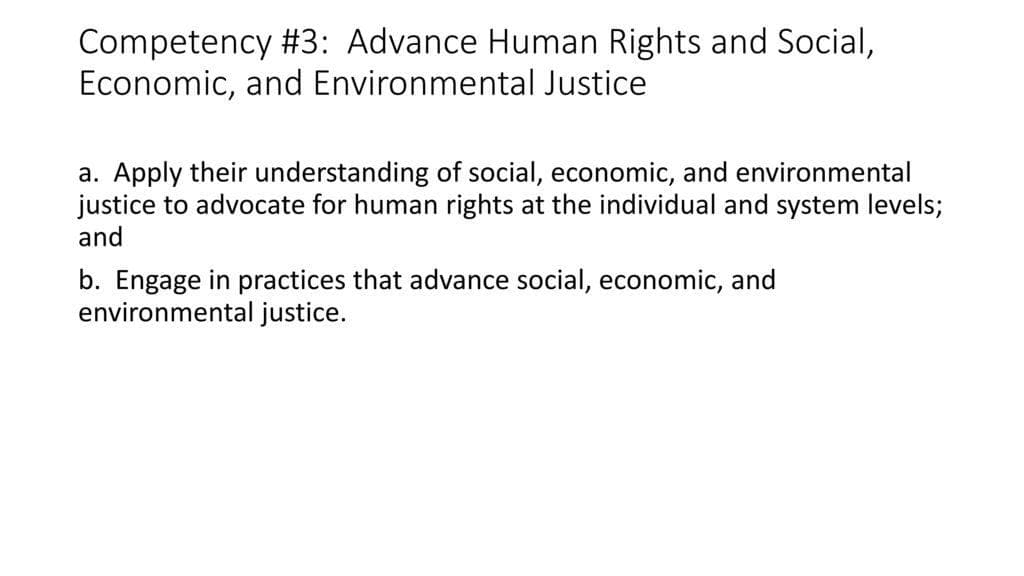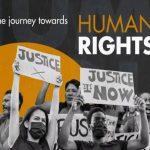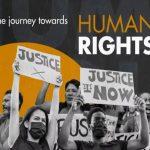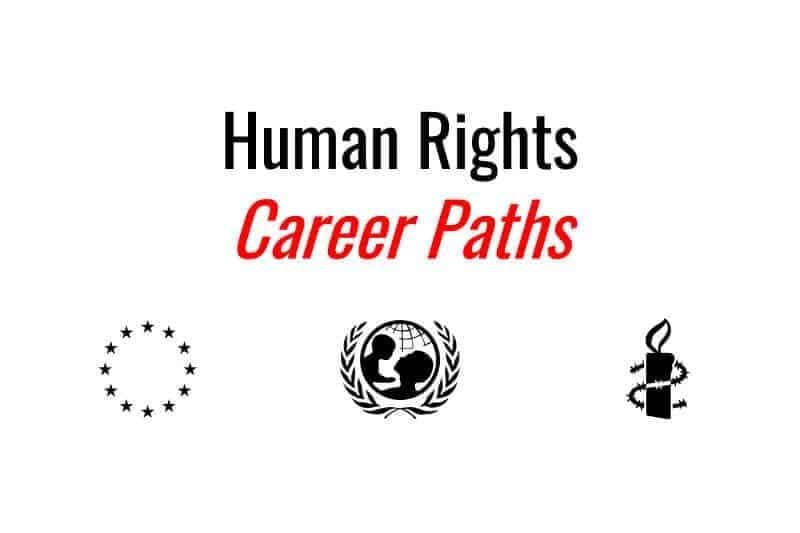The topic at hand is the importance of advancing human rights in various walks of life. We will be discussing its significance in our society, and how its advancement impacts different sectors.
We’ll delve into several key aspects of advanced human rights and evaluate their role and implications in our modern world.
- Investor Statement on Human Rights: An important proclamation regarding investment practices that uphold human dignity.
- Role of Signatory Advisory Committee: It plays a crucial part in guiding relevant organizations towards greater respect for human rights.
- Research on Advancing Human Rights: Vital studies that aid in the progression of human liberties globally.
- Competence Development in Field Education: A key factor in educating individuals about the importance of human rights.
- Activation for Human Rights and Justice: The essential push needed against any form of social unjustness.
- Ethics and Professional Behavior: These must always align with the principles of advanced human rights.
- Human Rights for a Superior Society: A notion that upholds the idea that respecting human rights results in a better society.
The advancement of human rights is intrinsic to societal development, and thus should be prioritized at all levels.
Contents
- Exploring the Significance of Human Rights
- Investor Statement on Human Rights
- Role of Signatory Advisory Committee
- Technical Advisory Group’s Contribution
- Research on Advancing Human Rights
- Competence Development in Field Education
- Activation for Human Rights and Justice
- Human Rights for a Superior Society
- Assessing Human Rights Impact
- Understanding the Global Tax Framework
- Ethics and Professional Behavior
- Engaging Diversity and Difference in Practice
- The Imperative Necessity
A Deeper Understanding of Advanced Human Rights
Incorporating the principles of advanced human rights into various sectors promotes ethical behavior.
This not only improves an organization’s reputation but also enhances overall societal wellbeing.
Significant research is necessary for the improvement and advancement of human rights globally.
Finally, education plays a key role in promoting awareness about these rights, helping to create a more just world.
Exploring the Significance of Human Rights

Organizations like Amnesty International exemplify the commitment toward preserving human rights across the globe.
Elevated by over 10 million people, these movements work tirelessly to shape a future where every individual can freely exercise their human rights.
Governments are not exempt from scrutiny. All violations get exposed, delivering justice to victims, no matter who they are or where they hail from.
- We believe in shared humanity, recognizing that we all have a collective responsibility for global matters – beyond what is relayed by politicians.
- Through collective strength, substantial change has been accomplished worldwide. As an example, capital punishment has been abolished in majority nations.
- We are independent of any political ideology, economic incentive or religious affiliation. We stand for people, not vested interests.
The underlying goal is a world in which every person can avail their rights as per Universal Declaration of Human Rights and other international standards.
This mission involves exhaustive research and necessary action against severe breaches of these rights. The values driving this effort include impartiality, independence, universality of human rights and democratic governance.
All regional offices operate under a mutual strategic plan that outlines key priorities and values to facilitate effective collaboration.
As a democratic organization, members have the power to guide its path. Representatives from over 60 countries attend an annual Global Assembly to make significant decisions that steer the direction of the human rights movement.
Investor Statement on Human Rights

Being an investor carries a significant responsibility. It’s not solely about financial returns but also recognizing how investments shape various sectors of society.
One crucial aspect is Human Rights. Undertakings in business shouldn’t violate these rights but instead promote and uphold them.
Respect for human rights, therefore, should be a strategic consideration in every investment decision made.
- Fulfilling Vested Obligations: Investors need to ensure their business activities fulfill universal human rights obligations.
- Risk Assessment: Investors must conduct due diligence to assess risks related to potential human right abuses.
- Community Engagement: Active engagement with communities can lead to trust-building and conflict mitigation.
The above list exemplifies how investors can proactively contribute to the advancement of human rights.
In alignment with these principles, a statement on human rights and business activities in Myanmar was issued by multiple global investors. This statement emphasizes their collective commitment to ensuring their investment decisions reflect respect for human rights.
If you’re interested, you can delve into the complete statement.
Investments should never come at the expense of humanity. An experienced investor understands this and wields his influence responsibly.
Last but not least, as we advance towards an equitable world, let us remember that finance and human rights aren’t exclusive but intertwined. Together they contribute to a just and inclusive world.
Role of Signatory Advisory Committee

The Signatory Advisory Committee plays a major role in upholding human rights. Its work focuses on overseeing various responsibilities.
By authorizing regulatory policies, they ensure that nations adhere to the principles of respect and dignity.
- Endorsement of Policies: The committee endorses policies enhancing human rights enforcement globally.
- Oversight: Their supervision prevents potential violations of global human rights, ensuring accountability and fairness in procedures.
- Advice: The committee provides advice to countries with struggling human rights management, suggesting effective methods for improvement.
- Campaigns: They organize campaigns to increase awareness and educate the public about human rights issues and protections.
This committee’s function extends beyond mere administration; it implements innovative strategies to protect basic human rights.
A prime example is deploying extensive research and data-driven approaches. These help identify potential gaps within current systems and develop effective solutions.
Their relentless work towards safeguarding human rights is crucial in creating a world where everyone is treated with dignity and respect.
This committee’s significance cannot be overstated. It exemplifies the international effort we need to curtail ongoing abuses and violations.
Technical Advisory Group’s Contribution

What is The Technical Advisory Group’s Role?
The Technical Advisory Group (TAG) influences human rights enhancements. Their significance lies in providing crucial, expert insight on technology-related challenges.
How do They Help in the Realm of Human Rights?
TAG’s work is evident in platforms that empower human rights activities. They create tech solutions that grapple with sensitive issues.
What Kinds of Technology are Involved?
The technology primarily comprises digital tools. It includes AI, data security frameworks, and communication infrastructures that ensure privacy.
Can You Elaborate on These Tools?
AI algorithms can analyze patterns in human rights abuse cases. This aids organizations to predict and strategize accordingly.
Data security frameworks protect sensitive information, thereby fortifying the reporting and combating of human rights violations.
Communication infrastructures let activists connect securely. It ensures their safety while they combat sensitive issues.
Are these Tools Universally Accessible?
TAG’s mission includes making these tools universally accessible. They strive to ensure everyone can utilize these tools to advance human rights.
What is the Impact of Their Work?
TAG’s work has positively impacted the human rights landscape. Their contributions have enabled activists worldwide to work more effectively against abuses.
How Does TAG Enhance Efficiency?
TAG enhances efficiency by creating robust tools that streamline operations for activists. Their insights shape strategies, optimizing efforts towards a just society.
Any Notable Achievements?
TAG’s notable achievements include advanced AI systems for abuse pattern recognition and secure communication platforms for activists.
Research on Advancing Human Rights

The pursuit for employee diversity is a priority for countless organizations.
Regrettably, not all hit their set targets.
Transparency on this lack of progress might be beneficial, sending a strong signal regarding the company’s commitment to diversity.
The Impacts of Transparency
Inaction over time, however, can diminish goodwill generated by disclosure.
In the wake of George Floyd’s tragic death and consequent introspection on racial injustice in 2020, many companies reiterated their commitment to workforce diversity.
New strategies and policies were established to reach leadership-set diversity goals.
Communicating Commitment
This dedication was often publicly articulated – at CEO speeches, press releases, company town halls, social media posts or internal communications.
For more details and insights on this topic, feel free to visit here.
Advocating for Inclusive Workplaces
The aftermath of George Floyd’s murder led numerous companies to intensify efforts in diversifying their workforce.
New strategies were adopted to reach diversity targets set by leadership.
For some organizations, these commitments were prominently displayed in various communication channels.
Competence Development in Field Education

Every school social worker ought to prioritize professional development, constantly expanding their skills and knowledge base.
Continuous learning activities are essential for staying updated with evolving best practices, research trends, and policy developments within the field of school social work.
- Professional growth opportunities: In-service training, workshops, and conferences are crucial elements to enhance professional competency.
- Supervision and consultation: These collaborative practices help to refine skills and broaden knowledge, improving practice performance.
- Collaboration with colleagues: Sharing knowledge and best practices can augment understanding and foster innovative solutions.
- Self-reflection and self-assessment: Self-awareness is key to identifying areas for growth and planning necessary improvements.
Social workers must choose development opportunities that are culturally responsive to effectively address the diverse needs of their student body, families, and communities.
Maintaining professional competence opens avenues for educational resources, directions, and solutions tailored to meet user needs. It aids in decision-making processes, improves efficiency, fosters new knowledge acquisition while enhancing user experience.
In this rapidly advancing field of school social work, it is your duty to maintain professionalism by assuring your competence continually evolves with the changing times.
Activation for Human Rights and Justice

Theresa Martinez, an ardent human rights advocate, leaves behind a legacy of activism.
Her work with Voice of Witness was instrumental in addressing this cause.
Voice Amplification
Martinez’s greatest contribution was giving voice to the often silenced.
Through storytelling, she amplified those impacted by injustice.
Tireless Human Rights Fighter
Martinez tirelessly fought against human rights abuses.
The power of her dedication cannot be understated.
Inspiration from Martinez
The impact Martinez left has propelled others to take action.
We owe it to her, and ourselves, to continue this fight.
Action for Justice
This dedication to justice is what we need to inspire us.
We must take on Martinez’s mantle and ensure that human rights are always prioritized in our efforts.
Valuing Humanity
Treating each other with dignity and respect should be a universal principle.
This is the essence of why we fight for human rights and justice.
Human Rights for a Superior Society

Human Rights Watch, established in 1978, operates with a commitment to protect and promote human rights globally. Their mission has always been to spotlight injustices and bring culprits to task.
Investigations and Advocacy
Their core operations involve probing rights violations, publicly revealing the truth, and advocating for policy modifications to foster equality and justice.
Tackling a Broad Range of Issues
Their scope of work has extended to address discrimination against women, LGBTQ individuals, and people with disabilities. This expansion aims at promoting inclusivity and equality.
Pioneering Technological Research Methods
Embracing modern technology, they have integrated tools like satellite imagery and data analysis into their research methodologies. This approach enhances the detection of patterns evidencing human rights abuses.
Achievements and Impactful Reports
Their tireless efforts have led to substantial impacts like unmasking major humanitarian crises and highlighting government usurpations of media outlets. They relentlessly advocate for marginalized communities.
An example of an impactful report is “A Threshold Crossed: Israeli Authorities and the Crimes of Apartheid and Persecution” (2021). This report scrutinizes Israel’s policies towards Palestinians.
“U.S. Prisons and Offenders with Mental Illness” (2003) is another significant contribution. It brings forward human rights concerns within US prisons.
Regional Work Evidence
Their regional work includes reports on Iran, such as “If the Soldier Dies, It’s on You” (2024). This report focuses on medical care attacks amid Ethiopia’s Amhara conflict.
Other crucial reports include those highlighting the plight of Leprosy sufferers in Azerbaijan (2020) and Saudi Arabia’s use of the death penalty.
Their body of work is a testament to their commitment to upholding human rights globally.
Assessing Human Rights Impact

Assessing the impact on human rights within corporate structures is a crucial yet complex task.
It calls for a deep dive into potential or existing adverse effects linked to a company’s operations, products, or services.
This process is often broadly termed as a Human Rights Assessment.
“A human rights assessment identifies and prioritizes actual and potential adverse human rights impacts, providing recommendations for appropriate action to address those impacts.”
The duration of such assessments can greatly vary. They could be rapid responses to unforeseen events or detailed evaluations stretching over several months.
Involvement of affected stakeholders is generally indispensable in these assessments. However, in scenarios when immediate action is called for, insights from previous stakeholder engagements are leveraged.
A common misconception is equating human rights assessments with human rights due diligence.
While an assessment plays a pivotal role, due diligence involves additional steps including action, tracking, and external communication of the company’s approach to human rights.
Transparency through publication of these assessments holds tremendous value. It offers stakeholders the ability to monitor the corporate entity’s commitment towards upholding human rights.
The extent of publication depends on several factors like stakeholder safety, commercial confidentiality, or legal prohibitions.
Understanding the Global Tax Framework

The Tax Justice Network focusses on creating a balanced society through tax regulation.
Their mission is to ensure that our tax and financial systems are equitable for everyone.
However, they argue that these systems are currently skewed to benefit the wealthy and powerful subverting the needs of the many.
| Tax Justice Concerns |
|---|
| Inequality |
| Corruption |
| Undermined Democracy |
| Tax Evasion |
| Table: Major Issues According to Tax Justice Network |
This organization highlights four primary concerns related to our tax systems.
Firstly, the inequality perpetuated by tax systems that favor the wealthy.
Secondly, corruption facilitated by complex and opaque tax structures.
Thirdly, an undermined democracy when it appeases the affluent over its citizens.
Lastly, tax evasion which robs governments of their due revenue.
These issues can be seen in instances of corporate tax abuse.
Behemoths like Amazon and Google sometimes exploit loopholes to evade taxes, robbing states of revenue.
Tax havens offering minimal or no taxation options compound this problem by providing a platform for such practices.
The role of Tax Justice Network is not only highlighting these issues but also offering solutions and promoting financial transparency.
The network releases biennial reports ranking jurisdictions based on their financial transparency, advocating for global changes.
An integral part of their strategy is awareness and action.
They frequently testify before parliamentary committees and publish informative reports to guide policy changes.
The Tax Justice Network also emphasizes their financial transparency, maintaining a high rating from Transparify.
Ethics and Professional Behavior

We face the potential for increased layoffs. Though unsettling, leaders can mitigate this impact. Strategies required emphasize connection, belonging and loyalty.
Envisioning a better future is essential. The notion exemplified in the book “Hacking Planet Earth” by Thomas Kostigen, discusses innovative ways to improve our world.
Loneliness can plague any workplace. From entry-level employees to C-Suite executives, it’s vital they feel connected and supported by their team.
Staying ethical isn’t just an idea, it’s a commitment. Surveys from professional organizations suggest an ongoing need for improvement across all industries.
‘Illuminators’ have a significant role in promoting positivity at work. Like lighthouses guiding ships in darkness, they provide illumination for a better workplace environment.
Political divides can pose challenges in business settings. Leaders must bridge these gaps to foster a harmonious and efficient working environment.
The EY case underlines grave issues with corporate governance. This case serves as a reminder of the cardinal need for ethical practices in business.
A constant focus on ethics and professional behavior is not just about crisis management but fostering an organizational culture that genuinely upholds these values.
Engaging Diversity and Difference in Practice

Social workers comprehend the complexities of human diversity.
Difference and diversity shape our identities, experiences, and perspectives.
Several factors intersect to form these dimensions of diversity.
The variety in age, ethnicity, gender or political ideology are significant contributors.
Moreover factors like culture, disability and ability also play integral roles.
| Factor | Diversity Contributor | Impact |
|---|---|---|
| Age | High | Shapes life experiences |
| Ethnicity | High | Influences cultural values |
| Gender | Moderate | Affects personal identity |
| Culture | Moderate | Influence on social norms |
| Disability and Ability | Moderate to High | Impacts societal inclusion/exclusion |
| Table 1: Diversity Factors and Their Impact | ||
Diverse factors result in either privilege, power or marginalization and oppression.
Social workers recognize this imbalance and work towards equity.
Oppression can often stem from values of one’s own culture.
Societal structures may promote exclusions leading to marginalization.
The goal is to understand these mechanisms and remediate them.
The Imperative Necessity
Advancing human rights, socio-economic justice, and environmental justice is vital for promoting a humane, equitable society. These tenets foster social unity through equal opportunity and respect, creating a sustainable future where all individuals can flourish. They are essential tools to combat systemic inequities and environmental degradation, paving the way for a harmonious coexistence on our planet.








